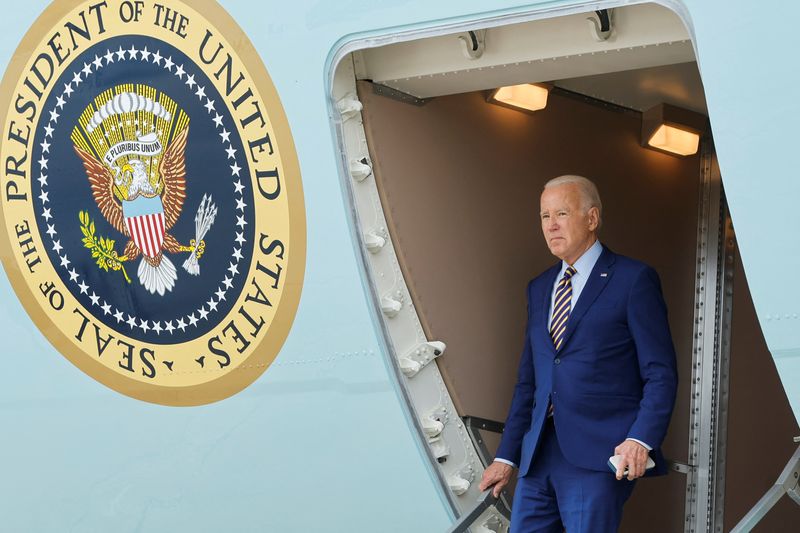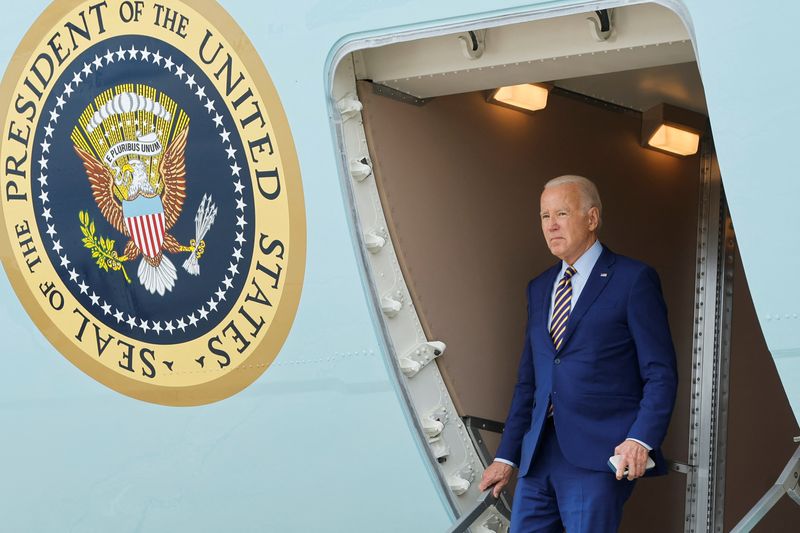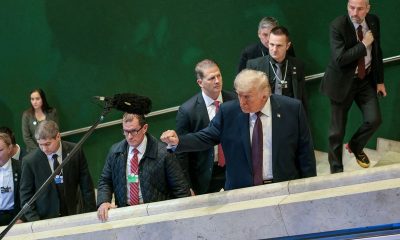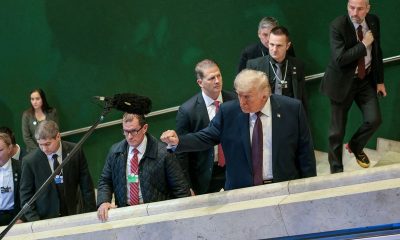Economy
Biden’s junk fee crusade turns to short-term health insurance plans


© Reuters. FILE PHOTO: U.S. President Joe Biden arrives aboard Air Force One at Joint Base Andrews, Maryland, U.S. July 6, 2023. REUTERS/Jonathan Ernst
WASHINGTON (Reuters) – President Joe Biden on Friday announced new steps to crack down on short-term health insurance plans and surprise medical bills, stepping up his war against so-called junk fees to lower healthcare costs.
This will include a proposed rule that closes loopholes companies use to offer misleading short-term insurance products, discriminate based on pre-existing conditions, offer little to no coverage and saddle consumers with thousands of dollars worth of medical expenses, White House Domestic Policy Adviser Neera Tanden told reporters.
The Obama administration in 2016 limited short-term insurance plans to three months to try to get more people on year-round plans, but regulations adopted by the Trump administration in 2018 allowed people to stay on such plans for 12 months and renew them for three years.
“These plans leave families surprised by thousands of dollars in medical expenses when they actually use health care services like a surgery,” the White House said on Friday.
With inflation still a potent political issue, the Biden administration has made it a priority to fight hidden fees by asking federal regulators to increase their oversight of companies across a range of industries including hotels, banks and airlines.
Biden, who in over two years as president has witnessed a sharp rebound from the COVID-19-induced recession, has nonetheless watched his public approval ratings sag under the weight of voters’ anxiety about inflation and the economy’s direction.
Job creation and low unemployment are the positives while elevated inflation and the knock-on effects of spiking interest rates over the past year in areas such as the housing market have stoked fears of recession.
Biden will also announce new rules to cut down on surprise medical billing, limit the use of third-party medical credit cards that include “teaser rates” and do not fully disclose the risks, Tanden said.
Surprise bills can occur when people are taken to the nearest hospital for emergency care or when someone goes to an in-network hospital but one of the doctors who treat them there is out-of-network, leading to surprise bills, the White House said.
More than half of Americans disapprove of how Biden is handling his job, while just 35% of respondents approve of his stewardship of the economy, according to a Reuters/Ipsos poll conducted in June. Voters rate the economy as their top issue.
Economy
Russian central bank says it needs months to make sure CPI falling before rate cuts -RBC


© Reuters. Russian Central Bank Governor Elvira Nabiullina attends a news conference in Moscow, Russia June 14, 2019. REUTERS/Shamil Zhumatov/File Photo
MOSCOW (Reuters) – Russia’s central bank will need two to three months to make sure that inflation is steadily declining before taking any decision on interest rate cuts, the bank’s governor Elvira Nabiullina told RBC media on Sunday.
The central bank raised its key interest rate by 100 basis points to 16% earlier in December, hiking for the fifth consecutive meeting in response to stubborn inflation, and suggested that its tightening cycle was nearly over.
Nabiullina said it was not yet clear when exactly the regulator would start cutting rates, however.
“We really need to make sure that inflation is steadily decreasing, that these are not one-off factors that can affect the rate of price growth in a particular month,” she said.
Nabiullina said the bank was taking into account a wide range of indicators but primarily those that “characterize the stability of inflation”.
“This will take two or three months or more – it depends on how much the wide range of indicators that characterize sustainable inflation declines,” she said.
The bank will next convene to set its benchmark rate on Feb. 16.
The governor also said the bank should have started monetary policy tightening earlier than in July, when it embarked on the rate-hiking cycle.
Economy
China identifies second set of projects in $140 billion spending plan


© Reuters. FILE PHOTO: Workers walk past an under-construction area with completed office towers in the background, in Shenzhen’s Qianhai new district, Guangdong province, China August 25, 2023. REUTERS/David Kirton/File Photo
SHANGHAI (Reuters) – China’s top planning body said on Saturday it had identified a second batch of public investment projects, including flood control and disaster relief programmes, under a bond issuance and investment plan announced in October to boost the economy.
With the latest tranche, China has now earmarked more than 800 billion yuan of its 1 trillion yuan ($140 billion) in additional government bond issuance in the fourth quarter, as it focuses on fiscal steps to shore up the flagging economy.
The National Development and Reform Commission (NDRC) said in a statement on Saturday it had identified 9,600 projects with planned investment of more than 560 billion yuan.
China’s economy, the world’s second largest, is struggling to regain its footing post-COVID-19 as policymakers grapple with tepid consumer demand, weak exports, falling foreign investment and a deepening real estate crisis.
The 1 trillion yuan in additional bond issuance will widen China’s 2023 budget deficit ratio to around 3.8 percent from 3 percent, the state-run Xinhua news agency has said.
“Construction of the projects will improve China’s flood control system, emergency response mechanism and disaster relief capabilities, and better protect people’s lives and property, so it is very significant,” the NDRC said.
The agency said it will coordinate with other government bodies to make sure that funds are allocated speedily for investment and that high standards of quality are maintained in project construction.
($1 = 7.1315 renminbi)
Economy
Russian central bank says it needs months to make sure CPI falling before rate cuts -RBC


© Reuters. Russian Central Bank Governor Elvira Nabiullina attends a news conference in Moscow, Russia June 14, 2019. REUTERS/Shamil Zhumatov/File Photo
MOSCOW (Reuters) – Russia’s central bank will need two to three months to make sure that inflation is steadily declining before taking any decision on interest rate cuts, the bank’s governor Elvira Nabiullina told RBC media on Sunday.
The central bank raised its key interest rate by 100 basis points to 16% earlier in December, hiking for the fifth consecutive meeting in response to stubborn inflation, and suggested that its tightening cycle was nearly over.
Nabiullina said it was not yet clear when exactly the regulator would start cutting rates, however.
“We really need to make sure that inflation is steadily decreasing, that these are not one-off factors that can affect the rate of price growth in a particular month,” she said.
Nabiullina said the bank was taking into account a wide range of indicators but primarily those that “characterize the stability of inflation”.
“This will take two or three months or more – it depends on how much the wide range of indicators that characterize sustainable inflation declines,” she said.
The bank will next convene to set its benchmark rate on Feb. 16.
The governor also said the bank should have started monetary policy tightening earlier than in July, when it embarked on the rate-hiking cycle.

 Forex4 years ago
Forex4 years agoForex Today: the dollar is gaining strength amid gloomy sentiment at the start of the Fed’s week

 Forex3 years ago
Forex3 years agoUnbiased review of Pocket Option broker

 Forex3 years ago
Forex3 years agoDollar to pound sterling exchange rate today: Pound plummeted to its lowest since 1985

 Forex3 years ago
Forex3 years agoHow is the Australian dollar doing today?

 Cryptocurrency3 years ago
Cryptocurrency3 years agoWhat happened in the crypto market – current events today

 World3 years ago
World3 years agoWhy are modern video games an art form?

 Commodities3 years ago
Commodities3 years agoCopper continues to fall in price on expectations of lower demand in China

 Economy3 years ago
Economy3 years agoCrude oil tankers double in price due to EU anti-Russian sanctions

























